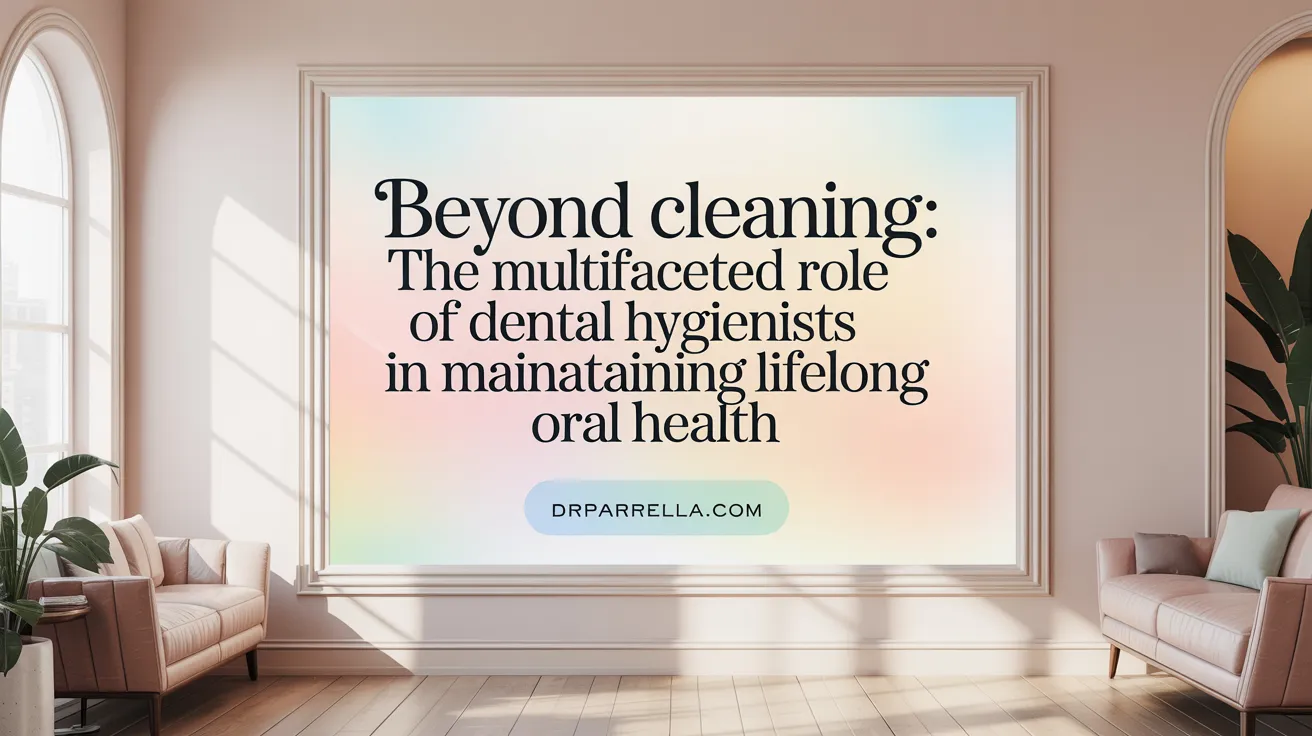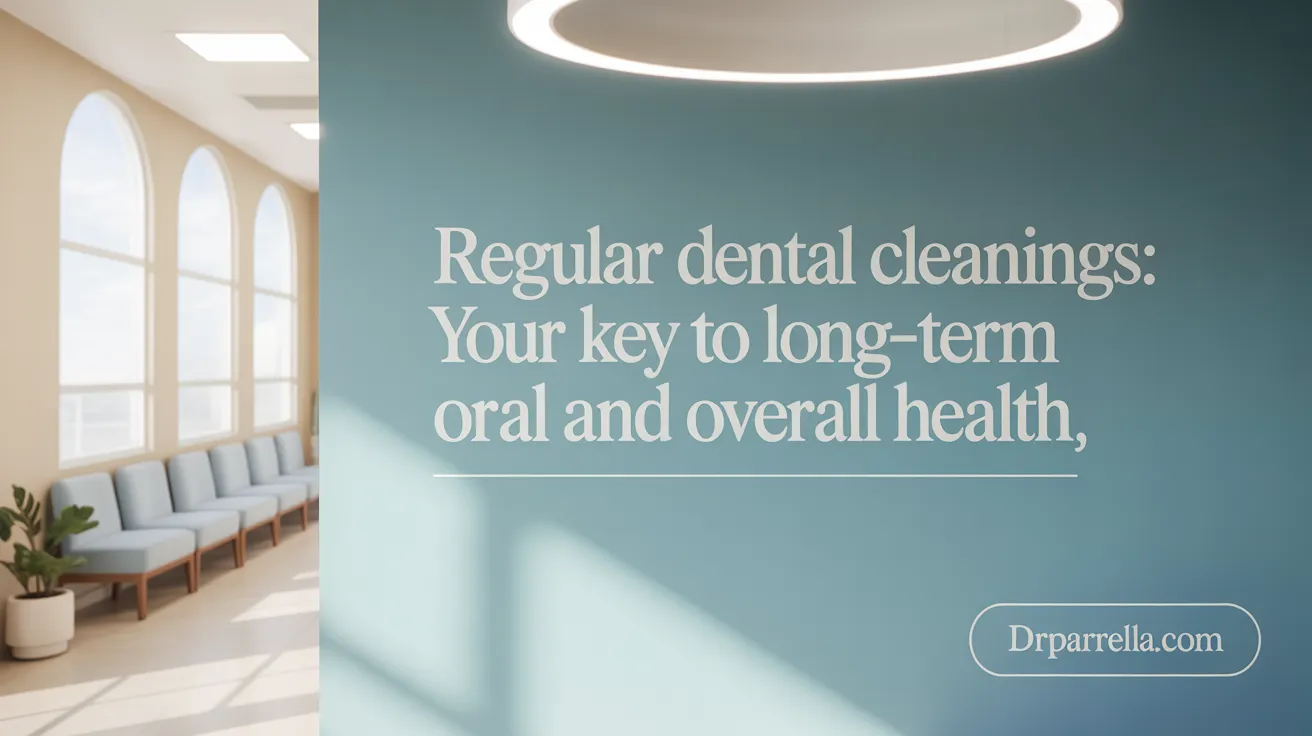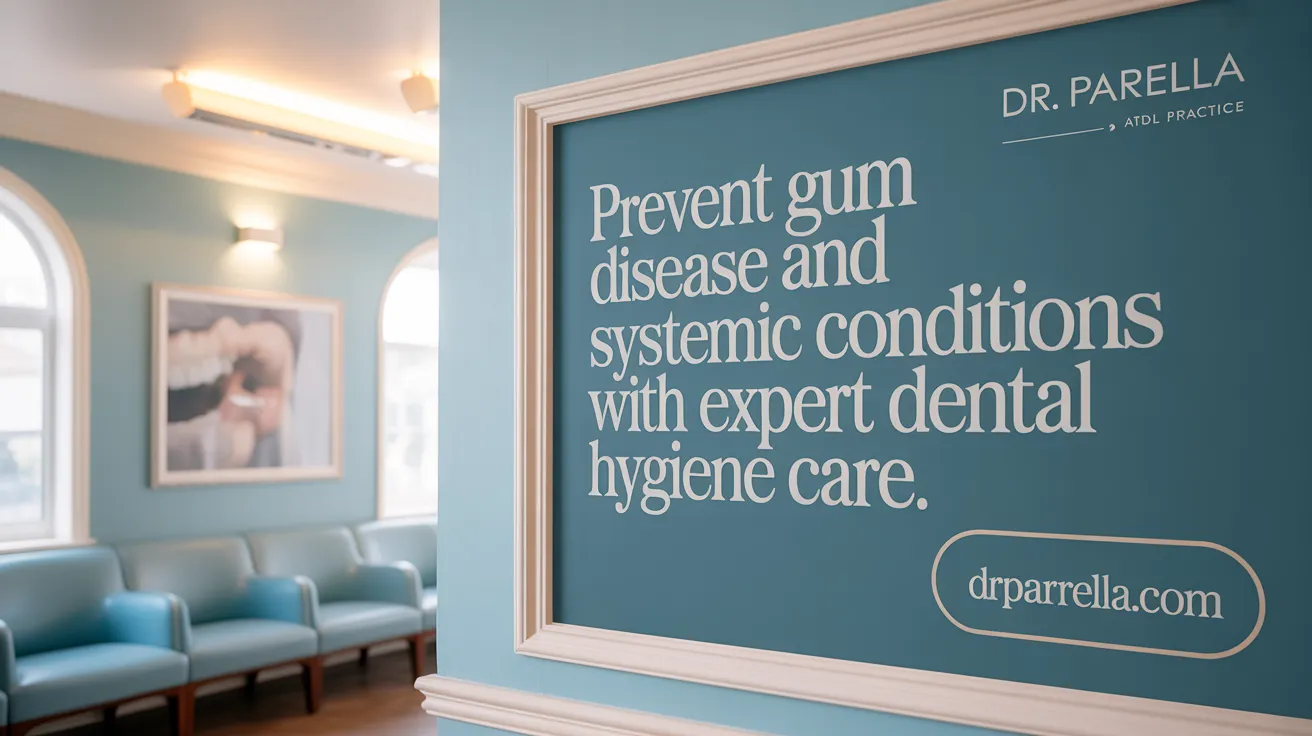Understanding the Crucial Role of Dental Hygienists
Dental hygienists are essential professionals dedicated to maintaining your oral health throughout life. Beyond routine cleaning, they offer preventive care, education, and early detection services that safeguard your smile and promote overall wellbeing. This article explores why dental hygienists are key to lifelong dental health and how their specialized care benefits both your teeth and systemic health.
<!-- VIDEO:eyJsaW5rIjoiaHR0cHM6Ly93d3cueW91dHViZS5jb20vd2F0Y2g/dj1kQTFzc0djUWRTayIsImltYWdlVXJsIjoiaHR0cHM6Ly9lbmNyeXB0ZWQtdGJuMC5nc3RhdGljLmNvbS9pbWFnZXM/cT10Ym46QU5kOUdjU3lOVVJYUWNpaVljNmliN2Y1RWlOb0puaWJabHk2RS1KOHNUTzE5cGRSOUlQVmVpR1JOeG9ORncmcyIsInRpdGxlIjoiSFVHIHlvdXIgSFlHSUVOSVNUIC0gV2h5IGEgZGVudGFsIGNsZWFuaW5nIGlzIG1hbmRhdG9yeSAuLi4iLCJzbmlwcGV0IjoiRHIuIE8gZGlzY3Vzc2VzIHdoeSBkZW50YWwgaHlnaWVuaXN0cyBhcmUgc28gaW1wb3J0YW50IGZvciBtYWludGFpbmluZyB0aGUgbG9uZyB0ZXJtIGhlYWx0aCBvZiB5b3VyIHNtaWxlIC4uLiBZb3VyIGh5Z2llbmlzdCBpcyB0aGUga2V5IHRvIC4uLiJ9 -->The Multifaceted Role of Dental Hygienists in Lifelong Oral Health

What is the role of dental hygienists in maintaining lifelong oral health and a healthy smile?
Dental hygienists are essential in promoting and maintaining oral health throughout a person’s life. Their primary responsibilities include performing professional cleanings that remove plaque and tartar, applying treatments like sealants and fluoride to strengthen teeth, and assessing patients for early signs of dental issues such as cavities and gum disease. By doing so, they help prevent common dental problems and promote a healthier smile.
Comprehensive clinical duties beyond cleaning
Beyond routine cleanings, dental hygienists carry out a wide range of clinical tasks. They take dental X-rays to assist with diagnosis, perform periodontal assessments to evaluate gum health, and may even administer local anesthesia in certain regions. They are also involved in treatments like scaling and root planing for gum disease management. These duties support early detection and intervention, reducing the risk of advanced oral health problems.
Education and promotion of healthy lifestyles
A significant part of a hygienist’s role is patient education. They teach proper brushing and flossing techniques, advise on diet and smoking cessation, and explain how lifestyle choices impact oral and overall health. Through community outreach and individual counseling, hygienists promote healthy habits that can prevent dental and systemic diseases, emphasizing the importance of oral health as part of overall wellness.
Collaboration within healthcare teams
Dental hygienists work closely with dentists and other healthcare providers to deliver comprehensive care. Their assessments help identify systemic health issues that manifest orally, such as diabetes and cardiovascular disease, facilitating early diagnosis and referrals. Collaborative efforts ensure holistic patient management, integrating oral health into general health care as highlighted in the multidisciplinary approach to oral health.
Contribution to public health and policy
Hygienists also contribute to broader public health initiatives. They engage in research, support community health programs, and advocate for policies that improve access to dental care. Their efforts can influence health policy changes, increase awareness about oral health disparities, and promote preventive strategies on larger scales, supporting health equity.
| Aspect | Description | Additional Details |
|---|---|---|
| Prevention | Cleaning, sealants, fluoride application | Reduces risk of cavities and gum disease |
| Detection | X-rays, assessments, early diagnosis | Supports prompt treatment |
| Education | Oral hygiene, lifestyle, diet | Encourages lifelong healthy habits |
| Collaboration | Team-based patient care | Integrates oral and systemic health |
| Public Health | Outreach, research, advocacy | Promotes health equity |
In summary, dental hygienists serve as vital advocates for lifelong oral health. Their diverse roles—from clinical care and education to research and policy—make them indispensable members of the healthcare team dedicated to ensuring healthier smiles and better quality of life for all ages.
Preventive Care and Daily Oral Health Maintenance Guided by Dental Hygienists
 Dental hygienists are crucial players in maintaining and promoting oral health through prevention and education. They perform professional cleanings to remove plaque and tartar that cannot be eliminated by regular brushing and flossing, helping to prevent cavities and gum disease. These cleanings often include applying sealants and fluoride treatments, which strengthen teeth and protect against decay.
Dental hygienists are crucial players in maintaining and promoting oral health through prevention and education. They perform professional cleanings to remove plaque and tartar that cannot be eliminated by regular brushing and flossing, helping to prevent cavities and gum disease. These cleanings often include applying sealants and fluoride treatments, which strengthen teeth and protect against decay.
Assessing patients’ oral health is another vital responsibility. Hygienists conduct examinations, take dental X-rays, and screen for early signs of oral and systemic conditions such as gum disease or oral cancer. This early diagnosis allows for timely intervention and referral to the dentist or other healthcare providers.
Educational efforts by dental hygienists focus on teaching effective brushing and flossing techniques, guiding patients toward better daily habits. They also provide dietary and lifestyle counseling, advising on nutrition, smoking cessation, and habits that influence oral and overall health.
Maintaining routine dental visits—usually every six months—is essential for ongoing prevention. During these visits, hygienists monitor oral health, update medical histories, and reinforce health promotion strategies.
The role of dental hygienists extends beyond cleaning; they serve as frontline educators and diagnostic specialists. Their comprehensive approach to prevention supports lifelong oral health and reduces the risk of developing more serious systemic health issues linked to oral health, such as heart disease and diabetes.
In summary, dental hygienists are vital in providing preventive care, early diagnosis, patient education, and promoting healthy habits—collectively helping individuals achieve and maintain optimal oral and overall health.
The Critical Importance of Regular Dental Cleanings for Long-Term Health
 Maintaining a routine of professional dental cleanings offers benefits that extend well beyond basic home oral hygiene. While daily brushing, flossing, and the use of mouthwash are essential, they cannot fully remove tartar and plaque that build up on teeth and beneath the gums. Regular visits to a dental hygienist ensure these deposits are thoroughly eliminated, significantly reducing the risk of cavities and gum disease.
Maintaining a routine of professional dental cleanings offers benefits that extend well beyond basic home oral hygiene. While daily brushing, flossing, and the use of mouthwash are essential, they cannot fully remove tartar and plaque that build up on teeth and beneath the gums. Regular visits to a dental hygienist ensure these deposits are thoroughly eliminated, significantly reducing the risk of cavities and gum disease.
Professional cleanings also play a vital role in early detection. During routine visits, hygienists and dentists can identify signs of early dental issues such as tooth decay, gum inflammation, and even signs of systemic diseases like diabetes or oral cancer. Detecting these problems early vastly improves treatment outcomes and can prevent more serious health complications (Role of the Dental Hygienist in Preventive Care).
Beyond dental health, these cleanings contribute to overall well-being by reducing systemic risks associated with bacterial infections originating in the mouth. Research indicates that controlling oral bacteria through professional care can lower the incidence of cardiovascular disease, stroke, and respiratory infections (Oral health and overall health).
From a cost perspective, regular dental checkups are economical. They prevent the need for expensive restorative procedures by catching problems early when they are easier and cheaper to treat. Routine cleanings every six months help maintain a healthy, attractive smile and support a healthier, longer life (Protect Your Long-Term Dental Health).
In conclusion, regular dental cleanings are a cornerstone of effective, preventative healthcare. They safeguard not only your teeth and gums but also your overall health, making them indispensable for lifelong wellness (Importance of lifelong dental health).
Dental Hygienists and the Prevention of Gum Disease and Systemic Conditions

How do professional dental hygiene practices contribute to the prevention of dental issues such as gum disease?
Professional dental hygiene practices are vital in preventing gum disease, which begins as gingivitis and can progress to more severe periodontitis. Hygienists perform comprehensive cleanings that remove plaque and tartar—sticky films of bacteria that build up on teeth and under the gums. Since this buildup cannot be completely eliminated through brushing and flossing alone, regular visits to a dental hygienist are essential.
During these visits, hygienists also provide education on proper brushing techniques, emphasizing cleaning at a 45-degree angle and including tongue cleaning to reduce bacteria. Interdental cleaning methods like flossing and interdental brushes are also instructed to ensure removal of plaque from areas toothbrushes cannot reach. This thorough plaque control reduces gum inflammation and the risk of periodontal disease.
What is the link between oral health and systemic diseases?
There is strong evidence linking oral health to overall systemic health. Bacteria and inflammation from periodontal disease have been associated with cardiovascular disease, diabetes complications, respiratory infections, and even some cancers. Chronic gum inflammation can contribute to systemic inflammation, which is a risk factor for many chronic conditions.
Hygienists play a key role in early detection and management of gum disease, preventing its escalation and potential impact on other parts of health. Regular professional cleanings and assessments help keep inflammation under control and prevent bacteria from entering the bloodstream.
How do hygienists help in early identification and management of gum disease?
Beyond cleaning, dental hygienists assess gum health through visual examination, measuring periodontal pocket depths, and reviewing changes over time. They can identify early signs of gum disease such as bleeding, swelling, and gum recession. When detected early, hygienists can implement non-invasive treatments like scaling and root planing and provide tailored oral hygiene instructions.
In cases where gum disease is more advanced, hygienists collaborate with dentists to plan treatment strategies, monitor progress, and provide ongoing education. Early management minimizes tissue damage and preserves natural teeth.
What is the impact of good periodontal health on overall health and healthcare costs?
Maintaining healthy gums through regular professional care reduces the risk of systemic conditions linked to inflammation. Preventive measures lower the chances of severe illnesses, which can be expensive to treat. Studies show that good periodontal health can decrease healthcare costs by decreasing the incidence of related systemic diseases.
Overall, the role of dental hygienists extends beyond the teeth and gums, positively influencing health outcomes and reducing medical expenses by focusing on prevention and early intervention.
| Aspect | Focus | Additional Details |
|---|---|---|
| Plaque and tartar removal | Prevent periodontal disease | Eliminates bacterial buildup that causes gum inflammation |
| Oral hygiene education | Improve at-home care | Techniques like proper brushing, flossing, and interdental cleaning |
| Link to systemic disease | Connects oral and overall health | Reduces risks of heart disease, diabetes, and respiratory issues |
| Early detection | Prevents disease progression | Periodontal assessments and early treatment |
| Impact on health costs | Cost savings in healthcare | Prevention reduces need for extensive medical and dental treatments |
Dental Hygienists as Advocates for Comprehensive Health Across the Lifespan

Impact on health promotion and systemic health
Dental hygienists are pivotal in promoting overall health through their focus on oral health. They provide essential education about how oral hygiene influences systemic conditions such as heart disease, diabetes, and adverse pregnancy outcomes. By performing comprehensive assessments, including periodontal evaluations and risk screenings, hygienists can identify early signs of systemic illnesses. Their preventive treatments—like professional cleanings , fluoride applications, and periodontal therapy—serve to reduce inflammation, especially in gum disease, which is linked to increased risks of cardiovascular disease and other chronic conditions. Moreover, they are key members of interdisciplinary health teams, facilitating collaboration with medical professionals to ensure holistic patient care. Their efforts in community outreach and behavioral counseling further support healthier lifestyles, ultimately reducing healthcare costs and improving overall well-being (Role of the Dental Hygienist in Preventive Care).
Interdisciplinary collaboration with medical professionals
Dental hygienists work closely with physicians, nurses, and other healthcare providers, forming a bridge between dental and general health services. This collaboration allows for early detection of health issues manifesting orally, such as signs of diabetes or heart disease. By sharing findings and referring patients for medical evaluation when necessary, hygienists contribute to early intervention, reducing the severity of systemic illnesses. Integrating oral health into broader health care practices enhances disease management and health outcomes, especially in managing conditions like periodontal disease that have systemic implications (Role of dental hygienists).
Educational guidance on oral hygiene routines and lifestyle
Hygienists educate patients on proper brushing, flossing, and dietary habits during every visit. They emphasize techniques such as angling brushes at 45 degrees towards the gums and using gentle circular motions. They advise on the importance of daily flossing, choosing appropriate oral care products, and maintaining a balanced diet low in sugar. Lifestyle counseling also includes smoking cessation and management of health conditions like diabetes, which can impact oral health. Through personalized guidance, hygienists empower individuals to take control of their oral health, supporting long-term prevention (Proper oral hygiene guidelines, oral health tips for adults).
Importance of continuous care for aging populations
For older adults, ongoing dental care is vital to address age-related issues like dry mouth, receding gums, and tooth loss. Regular visits enable early detection of conditions such as oral cancers and help manage complex health needs. Hygienists play a crucial role in advising seniors on maintaining hygiene despite physical or cognitive limitations and helping manage medication side effects that affect saliva production. Continuous care efforts preserve oral function, improve nutrition, and support overall quality of life. Additionally, integrating dental care into general health management helps sustain independence and well-being in aging populations (Oral management in rehabilitation medicine, Maintaining lifelong dental health).
Connection of oral health to general health and preventive strategies
The link between oral and overall health underscores the importance of preventive strategies. Maintaining good oral hygiene through daily routines, routine dental visits, and professional cleanings reduces the risk of infections and chronic diseases. Policy initiatives focusing on community water fluoridation, public education, and accessible dental services reinforce these strategies. The promotion of oral health as part of comprehensive health care encourages early intervention, decreases healthcare costs, and contributes to healthier populations (Oral health and overall health).
| Aspect | Role | Additional Details |
|---|---|---|
| Systemic Disease Prevention | Early detection and referral | Dental hygienists detecting systemic diseases |
| Collaborative Care | Integration with healthcare teams | Multidisciplinary collaboration in oral management |
| Patient Education | Oral hygiene techniques and lifestyle | Proper oral hygiene guidelines, Oral health tips for adults |
| Aging Oral Care | Management of age-specific issues | Maintaining lifelong dental health, Oral management in rehabilitation medicine |
| Overall Health Connection | Preventive strategies and policy | Community water fluoridation and public education, Link between oral health and overall health |
Embracing Dental Hygienists as Pillars of Your Health Journey
Dental hygienists are indispensable allies in maintaining a healthy smile and overall wellbeing throughout life. Their expertise in preventive care, patient education, early detection, and collaboration across healthcare disciplines ensures not only healthier teeth and gums but also supports systemic health. Regular visits to dental hygienists enable the prevention and management of oral diseases that affect quality of life and general health. By embracing the full scope of dental hygienists' roles, patients can enjoy lifelong oral health, reduced healthcare costs, and improved confidence in their smile and health.
